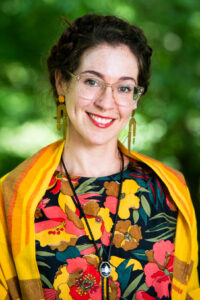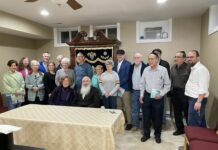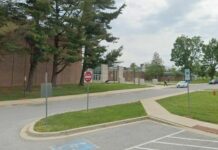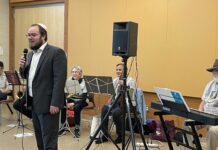In the wake of Oct. 7, the world may feel more divided than ever. And peace between Israelis and Palestinians may seem like the furthest thing from most people’s minds.

But even now, peace efforts between the two groups continue, spurred by grassroots activist organizations hoping to bring Israelis and Palestinians together. On Sunday, Jan. 21, Columbia Jewish Congregation was one of several co-sponsors of an online panel by the peace movement Standing Together, a group focused on civil rights for Palestinians and other minorities in Israel. Speakers Sally Abed, a Palestinian woman living in Haifa and part of Standing Together’s national leadership, and Nadav Shofet, an Israeli volunteer from Tel Aviv, spent the hour speaking about their experiences and Standing Together’s mission to promote solidarity.
Columbia Jewish Congregation specified on its website that it was co-sponsoring this event not as a reflection of it taking any particular position, but as an opportunity for learning and to be able to hear a different perspective about current events in Israel.
“One of my priorities since Oct. 7 has been providing opportunities for people to learn. They aren’t opportunities to say that this is where CJC stands, but that they are opportunities to hear from different voices so people can decide for themselves what they think. An important way to engage is to listen and be understanding,” CJC Rabbi Michael Hess Webber said.
The panel was organized by SAJ – Judaism That Stands For All in New York. CJC’s fellow co-sponsors included other Reconstructionist congregations from across the east coast such as B’nai Keshet of Montclair, New Jersey; Reconstructionist Synagogue of the North Shore of Plandrome, New York; and Pleasantville Community Synagogue of Pleasantville, New York.
“I deeply understood the need for us to organize as marginalized groups, not just around the divisions of Jewish and Arab, but around acknowledging that the majority of people in Israel belong to some kind of marginalized group,” Abed said of her own experience at the event. “In order to advance my cause as a Palestinian, I need to advance our collective causes for equality and social justice.”
Abed, 32, grew up in a small village close to Israel’s border with Lebanon and has been involved with Standing Together for seven years.
Shofet is a more recent member of Standing Together, having joined in 2020. He attended a protest and was curious about the Standing Together signs he saw members carrying, which were written in both Hebrew and Arabic — a rarity at Israeli protests.
“These people were talking about issues that are not just our current leadership, but other real issues,” he recalled. “I remember thinking ‘Wow, this is so weird and new and different. These people are not just practicing a persona, but putting forward an alternative for how we should live our lives.’”
In the days since Oct. 7, Standing Together has expanded its efforts considerably and now operates out of 12 local chapters across Israel and seven centralized at universities. With 5,000 members, the organization is focused on mobilizing Israelis to promote solidarity within the country.
“We understand that our mission as a movement right now is to strengthen the Jewish-Arab partnership … to really invite as many people as possible to our space, so they can grieve properly without the need to cancel each other,” Abed said.
Part of their strategy is examining the emotional reaction to the events of Oct. 7 and meeting people at their level, using that understanding to encourage a more nuanced discussion of the peace process.
“The question always comes up, asking us how we can be for peace after what Hamas has done,” Shofet said. “I think it’s very natural for us to say that this atrocious attack has turned us into people who can’t believe in peace, we have to go only towards war … but this knee-jerk reaction is just feeding into what [Hamas] wanted.”
Webber said she hopes that this panel gave attendees the chance to approach the situation in Israel from a perspective they may not have considered, encouraging more nuanced discussions.
“What I’ve been hearing sometimes from both sides is that it’s not complex, it’s simple. I think if it were not complex, a solution to this conflict would have arisen long ago. The more complexity we are able to make room for and the more critical thinking we are able to do, the more we are able to understand the nuance, the barriers, the stories, and that feels like an important piece to have before casting judgment,” she said. “Before speaking out from a place of emotion, how can we establish a foundation in fact and understanding? People should feel empowered to feel how they do; we all come from different perspectives.”







